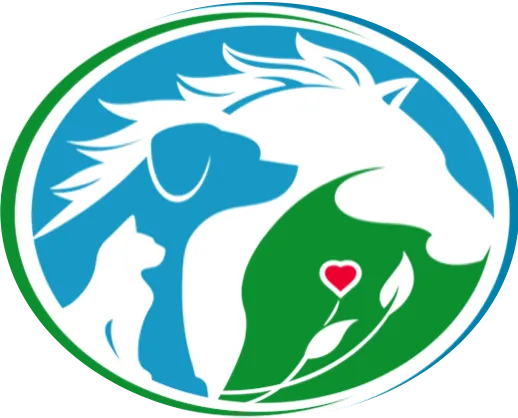Cats, Dogs, Horses, Small Pets, Birds, Poultry & Reptile
(How to Use with Fish is below)
read our testimonials & articles about
Avian Harmony and Well-being
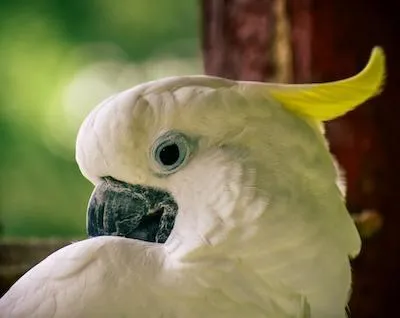
Bird Anxiety-A Basic Guide
Bird Anxiety
Birds, akin to humans and other members of the animal kingdom, are susceptible to experiencing anxiety and stress across a spectrum of scenarios. Discerning the telltale symptoms of bird anxiety is paramount for attuning to your avian companion's emotional welfare and adeptly tending to their needs. In the following discourse, we embark on an insightful exploration of the multifarious symptoms that birds may manifest amidst states of anxiety, delving deeply into an array of behavioral and physical cues that serve as poignant indicators of their emotional turmoil. This comprehensive analysis, endeavors to provide invaluable insights into the intricate nuances of avian distress, equipping bird owners with the knowledge and understanding necessary to understand bird anxiety.
Behavioral Symptoms
Behavioral changes are often the most noticeable signs of bird anxiety. Birds may exhibit alterations in their usual behavior patterns, such as increased vocalization, agitation, or withdrawal. Some birds may become more aggressive or territorial, while others may display signs of fear or apprehension, such as hiding or cowering. Additionally, birds experiencing anxiety may engage in repetitive behaviors, such as feather plucking, pacing, or excessive grooming, as a coping mechanism.
Changes in Vocalization
Birds communicate through vocalizations, and changes in their vocal behavior can indicate underlying stress or anxiety. Some birds may vocalize more frequently or loudly when they're feeling anxious, while others may become unusually quiet or subdued. Pay attention to any shifts in your bird's vocalizations, such as new sounds, pitch changes, or alterations in volume, as these may signal emotional distress.
Physical Symptoms
In addition to behavioral changes, bird anxiety can manifest in various physical symptoms. Birds may exhibit signs of physiological stress, such as rapid breathing, trembling, or fluffed feathers. Some birds may lose interest in food or experience changes in appetite, leading to weight loss or malnutrition. Additionally, birds experiencing anxiety may show signs of digestive disturbances, such as diarrhea or regurgitation.
Aggression and Fear
Birds experiencing anxiety may exhibit heightened levels of aggression or fearfulness, particularly in response to perceived threats or stressors. They may become defensive or territorial, lashing out at perceived intruders or even their own owners. Alternatively, some birds may become excessively timid or fearful, avoiding interaction and retreating to secluded areas of their cage or aviary.
Changes in Activity Levels
Changes in activity levels can also indicate bird anxiety. Some birds may become hyperactive or restless, unable to relax or settle down. Others may become lethargic or inactive, spending more time perched in one spot and exhibiting reduced interest in their surroundings. These changes in activity can be indicative of underlying emotional distress and should be monitored closely.
Self-injurious Behaviors
In severe cases of bird anxiety, birds may engage in self-injurious behaviors as a means of coping with their distress. This can include feather plucking, excessive grooming to the point of skin damage, or even self-mutilation. These behaviors can have serious consequences for the bird's health and should be addressed promptly by a qualified avian veterinarian.
Environmental Stressors
Environmental triggers can play a significant role in triggering anxiety in birds. Changes in their surroundings, such as loud noises, sudden movements, or unfamiliar people or animals, can provoke feelings of fear or apprehension. Additionally, alterations in their living environment, such as changes in cage placement or the introduction of new toys or perches, can disrupt their sense of security and stability. Birds are highly sensitive to their surroundings, and even seemingly minor changes can have a significant impact on their emotional well-being.
Situational Stressors
Situational stressors are specific events or circumstances that can trigger anxiety in birds. These stressors can vary widely and may include factors such as visits to the veterinarian, changes in routine, or the presence of unfamiliar people or animals. Birds may also experience stress during periods of confinement, such as when traveling in a carrier or being temporarily housed in a new environment. Additionally, events such as loud noises, sudden movements, or unexpected changes in their surroundings can provoke feelings of fear or apprehension in birds. Situational stressors can have a significant impact on a bird's emotional well-being and may manifest in various symptoms of anxiety.
Conclusion
Understanding the symptoms of bird anxiety is crucial for identifying emotional distress in your avian companion, especially in the face of environmental and situational stressors. Environmental triggers, such as changes in cage placement or the introduction of new toys, can disrupt a bird's sense of security and stability. Similarly, situational stressors, like visits to the veterinarian or unexpected loud noises, can provoke feelings of fear or apprehension in birds. By recognizing behavioral, vocal, physical, and emotional cues associated with these stressors, bird owners can take proactive steps to address their bird's needs and promote their overall well-being.
Whether through environmental adjustments, socialization, or veterinary intervention, addressing bird anxiety requires patience, compassion, and a commitment to understanding and meeting the unique needs of each individual bird.
A Trained Animal Communicator Connects with Your Pet
With every order, a trained animal communicator connects with your pet to choose the right blend of flower essences
(e.g. Bach Flower Essences) for calming their anxiety. Custom blended flower essences are natural pet calming products.



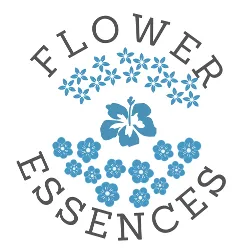
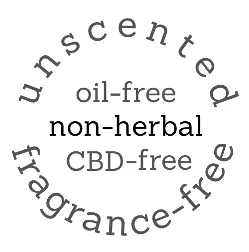
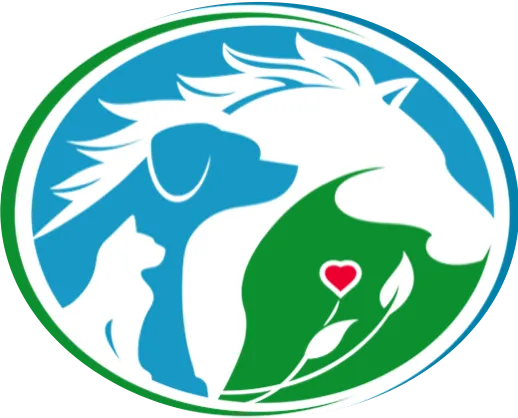
Calm Animal Solutions
Calm Animal Solutions offers customized, natural remedies for dog anxiety, and are calming for cats. Plus, we create blends for horses, small animal pets, birds, poultry, reptiles, and fish.
#CalmAnimalSolutions
on Instagram.
©2024, Catherine Winfree. All rights reserved.
Mandatory FDA Notice: The statements made regarding Calm Animal Solutions have not been evaluated by the Food and Drug Administration. These products are not intended to diagnose, treat, cure, or prevent any animal disease. Although the ingredients in Calm Animal Solutions are generally regarded as safe, you are encouraged to consult your veterinary before using any essence product (such as Bach Flower Essences, for example).
A Trained Animal Communicator Connects with Your Pet
With every order, a trained animal communicator connects with your pet to choose the right blend of flower essences (e.g. Bach Flower Essences) for calming their anxiety. Custom blended flower essences are natural pet calming products.





Mandatory FDA Notice: The statements made regarding Calm Animal Solutions have not been evaluated by the Food and Drug Administration. These products are not intended to diagnose, treat, cure, or prevent any animal disease. Although the ingredients in Calm Animal Solutions are generally regarded as safe, you are encouraged to consult your veterinary before using any essence product.

Home | Contact | Terms | Privacy Policy | About Catherine
©2024, Catherine Winfree. All rights reserved.
